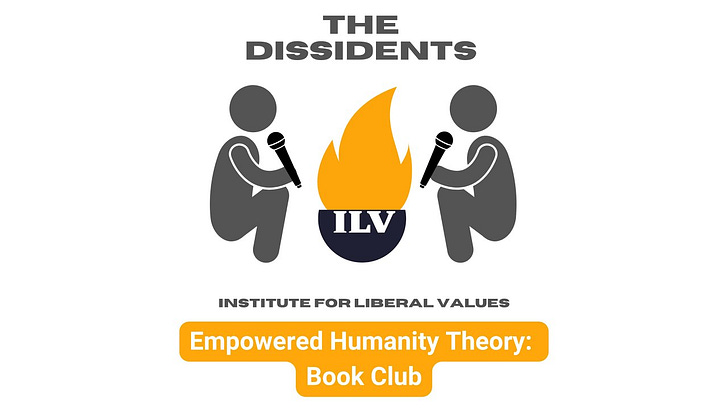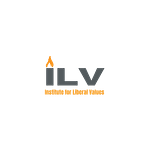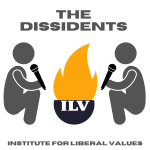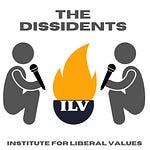Value Centered Identity
Diana, Wink, and Zander discuss Part 2 of Jason Littlefield’s book, “Empowered Humanity Theory,” focusing on the essential attitudes required for developing a value-centered identity, cultivating a dignity lens, and prioritizing a compassionate and inquisitive mindset. Wink introduced the concept of neuroplasticity and the brain’s architecture as a framework for personal growth and transformation. Diana, a board-certified neurologist, was invited to share her perspective on how emphasizing core values can rewire the brain away from tribalism, aligning with the book’s themes. Zander discusses how individuals can strengthen coping and decision-making skills through practice, allowing them to navigate life’s challenges more effectively. The discussion highlighted the importance of self-examination and authentic living, drawing inspiration from philosophers like Socrates and Parker Palmer.
Empowered Humanity Theory: The Three Pathways of Practice
Winkfield Twyman’s response to Empowered Humanity Theory
As you may recall, I am participating in a rolling series of podcast discussions about Empowered Humanity Theory: A Framework for Living an Empowering and Dignified Life by author Jason Littlefield. The general thesis of Empowered Humanity Theory is that principles of neuroscience and psychology research can lead us to better practices for building awareness and equanimity, celebrating our common humanity, and cultivating kindness and compassion for self and others.
The practice of “awareness is more than a practice—it’s the art of directing attention with precision and purpose to gain profound insight into youself and the world around you.” The more we practice awareness in our daily lives, the more we shape our neural pathways to see clearly. We are less overwhelmed by external chaos in the world. Instead, practicing awareness anchors our neural connections in choosing our next moves with clarity.
I applaude awareness, although I wonder whether there are limits to awareness. I can’t be truly aware of the lives of over 8 billion people on the planet. Are there limits to how aware I can be of those who live different lives from me? Who speak different languages from me? Who have personalities different from me? I hope my co-conversants, Diana Blum and Zander Keig, join me in exploring the outer limits of awareness.
The next practice is celebrating our common humanity. The idea is “beneath our visible differences flows a river of shared human experience.” Well, sign me up. After weeks and months of penning essays, I believe human dignity lies at the center of our search for meaning. Can you imagine a universe where meaning makes sense without human dignity? This is is my belief. On Sunday, I purchased two new books — Buckley: The Life and the Revolution that Changed America by Sam Tanenhaus and the novel Swann’s Way by Marcel Proust. The opening quote in Buckley captures how I cherish a belief in our common humanity:
Facts do not penetrate the sphere in which our beliefs are cherished. They did not endanger those beliefs and are powerless to destroy them. They can inflict on them continual blows of contradiction and disproof without weakening them. And an avalanche of miseries and maladies succeeding one another without interruption in the life of a family will not make doubt either the benevolence of its God or the competence of its physician. — Marcel Proust, Swann’s Way
Perhaps, Diana and Zander will explore with me whether this quote rings true to my belief in our common humanity. And, if it rings true, is that a good or a bad thing? Am I living an examined life when it comes to our common humanity?
Finally, the last practice Littfield puts forth would be practices that build kindness and compassion for self and others. Who can object to building compassion for self and others? In fact, I worry we might have too much compassion in the world these days. See Jason Riley’s book Please Stop Helping Us. Could it be that the scales have tilted too far in the direction of compassion when millions of Americans believe reparations for American slavery are beyond discussion and discourse? Once again, might Diana and Zander help me flesh out these questions? I hope so.
Maybe, we should insert empathy for compassion as a practice for building a more resilient society. Empathy means understanding and sharing the feelings of others. In the realm of wisdom, greater understanding beyond dogma and slogan words seems very wise. Compassion is pity. We need less pity in the public square. Pity seems inconsistent wtih human dignity which is my cardinal value for our search for meaning.
Conclusion: We begin our discussion in less than an hour. I am eager for our conversation to begin.
What we’re doing, thinking, reading…
Pam Hayes-Bohanan
This Week in Banned Book News
Following an appeal to the Maryland State Board of Education the Harford County Board of Education has been directed to revisit its procedures for evaluating books. Based on the directive from the State Board the Harford County Board has also reversed its decision to remove the graphic novel Flamer by Mike Curato from middle and high school libraries. The Lamda Literary Award-winning book with themes of bullying, questioning sexuality, and suicide will be returned to school shelves.
Additional Information
State’s board of education reverses Harford County decision to remove ‘Flamer’ from bookshelves
Utah state law requires that any book banned from any three school districts in the state be removed from all public schools. Jay Asher’s Thirteen Reasons Why is the most recent title to succumb to the “sensitive materials” law. The New York Times bestselling book about suicide joins eighteen other books that have already been deemed inappropriate and removed from all schools in the state.
Additional information
Utah banned a 19th book from all public schools. Here’s what it’s about.
The State of Book Bans: Utah’s ‘No-Read List’
List of Books Banned in Utah Schools
ProSocial Workers
Our partners at PSW have been busy this month. Check them o
Successfully tabled at the CSWE Conference exhibit hall, leading to a surge in new members of Heterodox Social Work.
Delivered a standing-room-only panel presentation at CSWE, featuring Dr. Nafees Alam, Heidi Rueda, Bruce Thyer, and Vicki Lens, which generated high enthusiasm and engagement.
Submitted and received official acceptance for our Heterodox Social Work Special Interest Group (SIG) at the Society for Social Work and Research (SSWR), with the inaugural meeting scheduled for January 2026 in Washington DC.
Secured an invitation, thanks to Bruce Thyer, to contribute an entry on “Heterodox Social Work” into the Encyclopedia of Social Work.
Launched a new Heterodox Social Work Facebook group, inspired by Bruce Thyer and created by Arnold Cantu, to facilitate ongoing discussions and resource sharing (join here: https://www.facebook.com/groups/hxsocialwork).
Nafees Alam
Nafees’ article, Viewpoint and Political Diversity and the NASW Code of Ethics, published in Journal of Teaching in Social Work, Volume 45 Issue 5, is now available for you to access via tandfonline.com.
James E. Petts
James creates our Liberal Concept Explainer shorts. This week we are looking at polarization.
Learn how polarization helps politicians to get away with corruption and abuse and what you can do to help to end it and let us know what you think.
Did you know that when you become a paid subscriber to our substack you are donating to a 501c3 non-profit organization, and it is tax deductible?
You can also donate at ilvalues.org. All donations go to support our continued programming to realize our mission to provide the skills and support required to build community where there has been division, encourage free expression where there has been censorship, and foster optimism where there is fear.
*To sponsor a specific event with your name or logo, please reach out directly to admin@ilvalues.org*

















